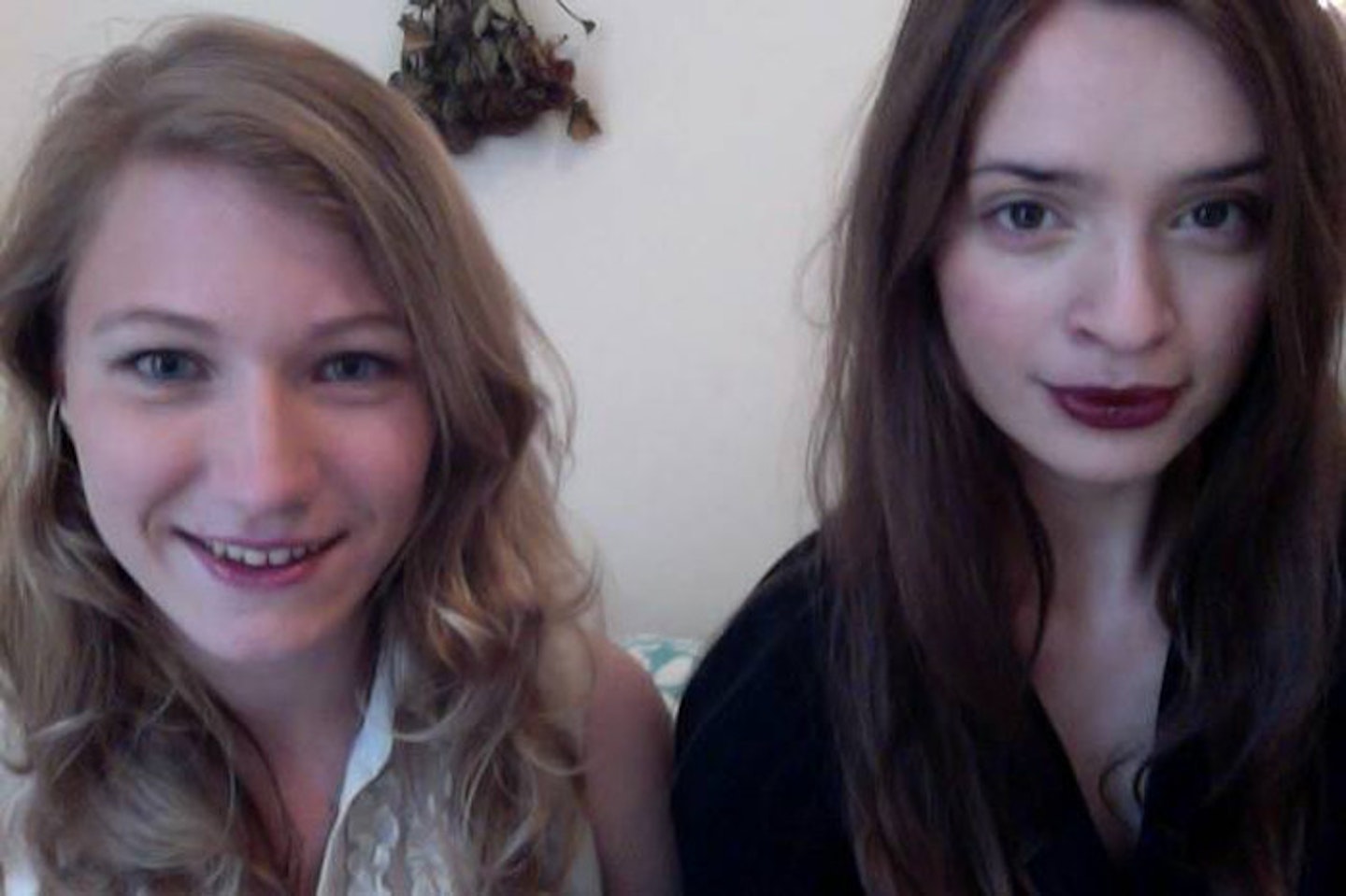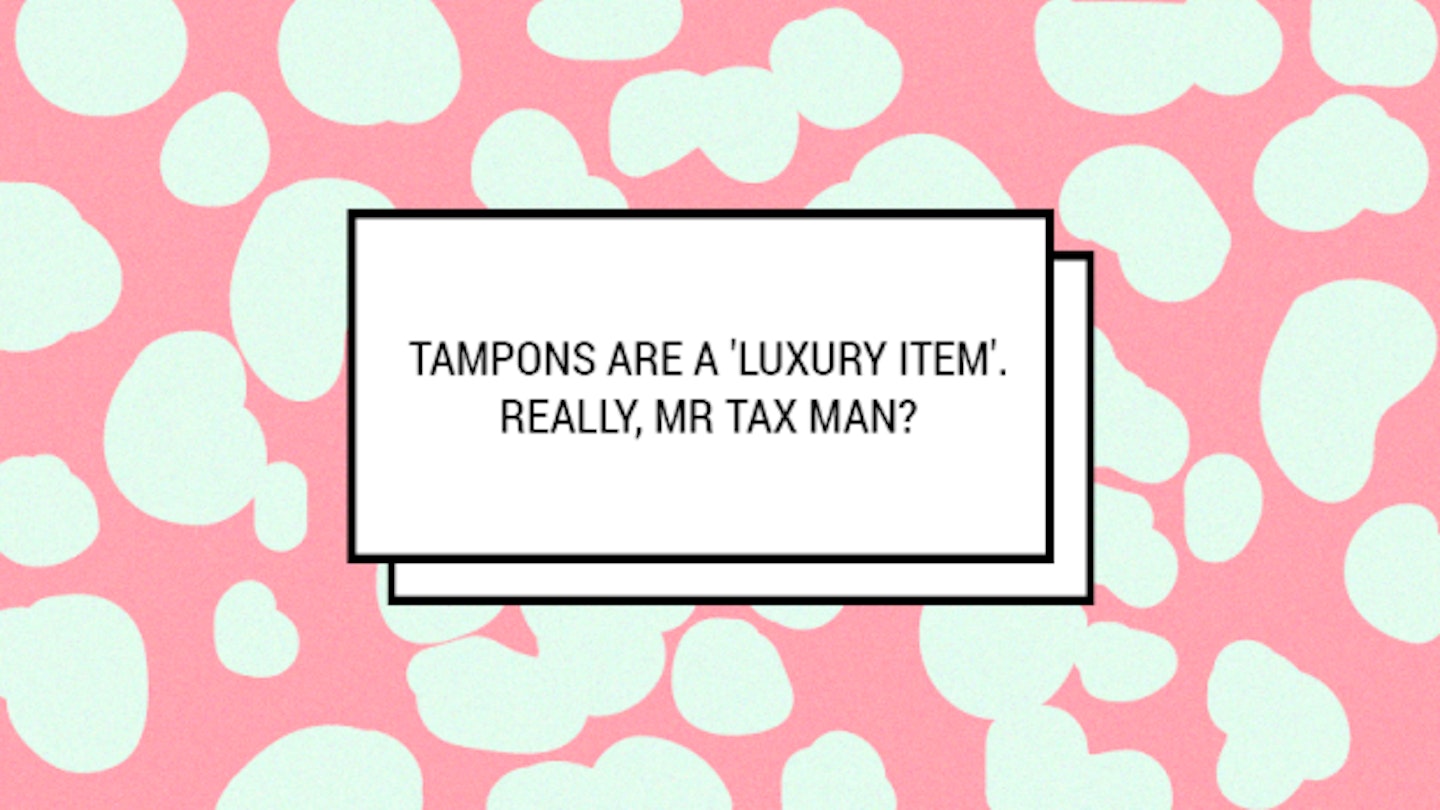One of life’s eternal questions that one, isn’t it? But seriously (SERIOUSLY!) why does the government insist on taxing sanitary products as a ‘non-essential item’ when ‘essential’ tax-free items include men’s razors (but not women’s), edible cake decorations and, of course, crocodile steaks. NONE OF WHICH GETS TAXED?
Instead, ‘non-essential’ tampons and sanitary towels all get taxed at five per cent (because we don’t really need tampons, do we? Why can’t we just stuff some tissue in our pants and get on with it?), ramping up the cost of a 16-pack box of non-applicator, regular Lil-Lets tampons in Boots by 11p, from £2.18 to £2.29.
That might not seem like a lot of money, but what if you come on the week before payday, and you happen to be, let’s say 15p short? Suddenly, it seems like loads, doesn’t it?
Goldsmith's College students Laura Argyropulo Coryton, 21, and Rosie Chronnell Scott, 20, were so incensed that they set up a petition on Change.org, calling for the government to stop classifying sanitary products as non-essential. (There is a precedent here – in 2001, the government reduced the rate on sanitary products from 17.5 per cent to five per cent, following pressure to keep the rate in line with EU regulations.)
Since it’s launch just a few weeks ago, the petition has received 25,000 signatures. ‘When we first found out that sanitary products were taxed at five per cent, we assumed it was in keeping with other, similar products,’ the pair told The Debrief.
‘It was only when we started to look into it that we discovered quite how many borderline ludicrous products were classed as “essential”.’
This is the first petition the girls have set up, and they were amazed at how much traction it gained, almost instantly. ‘We just started off by asking our friends at univeristy and on Facebook. At first we were going to set the target at 200 signatures. We went for 500 in the end, and it got that many overnight.’

What has amazed the duo is the breadth of support they’ve received – with signatures coming in from the US to Abu Dhabi. ‘Our aim is to get taxation removed from sanitary products completely, but as the five per cent tax rate is an EU regulation, we’d have to go to the European Parliament, so we need as many signatures possible.’
So far, almost everyone has been broadly supportive, although some people have accused the pair of just trying to get out of paying tax. ‘We’re not attacking the tax system – we’re attacking the fact that tampons are seen as non-essential, while crocodile steaks are seen as an essential item.’
Change.org’s UK director Brie Rogers Lowerysays this petition is another great example of how young women are using the site to mobilise people around one key issue. ‘We’ve seen this petition rocket to 25,000 since it was started a couple of weeks ago. It’s another impressive campaign driven by young women on the site – like the campaigns to get women on bank notes and mothers’ names on marriage certificates – women are using the power of the web to challenge things that many have come to accept, and saying they need to change.’
And when you think about it, the classification of sanitary products as non-essential, when so many other products remain untaxed, does seem like a bizarre, archaic anomaly – like a loophole that no-one’s ever noticed before.
It seems painfully obvious to have to point this out, but let’s do it anyway. Yes, we might be able to ‘get away’ without purchasing separate sanitary protection, but it could stand in the way of us getting an education, earning a living and generally acting like we exist to be anything more than baby-making machines, producing a new generation of men to go and fight wars and earn money, while we sit at home, bleeding everywhere.
Think we’re making a little too much of that extra 11p? Then maybe we should turn to India, where a lack of adequate sanitary protection means that only 12 per cent of menstruating women use sanitary towels. The use of unsterilised cloths can lead to reproductive tract infections, while in rural areas, adolescent girls can miss up to 50 days’ schooling a year due to inadequate levels of sanitary protection.
Periods aren’t a choice, and having adequate sanitary protection isn’t a luxury. Cutting that five per cent tax on tampons isn’t, realistically, going to make a huge difference to most of us (although the £1,500 you could save in a lifetime if they dropped the tax isn’t to be sniffed at).
But by continuing to classify sanitary products as non-essential, politicians are, by extension, saying that women’s ability to go to work, go to school, and use public transport for 31 days of the month aren’t that essential either.
Follow Rebecca on Twitter @rebecca_hol
This article originally appeared on The Debrief.
